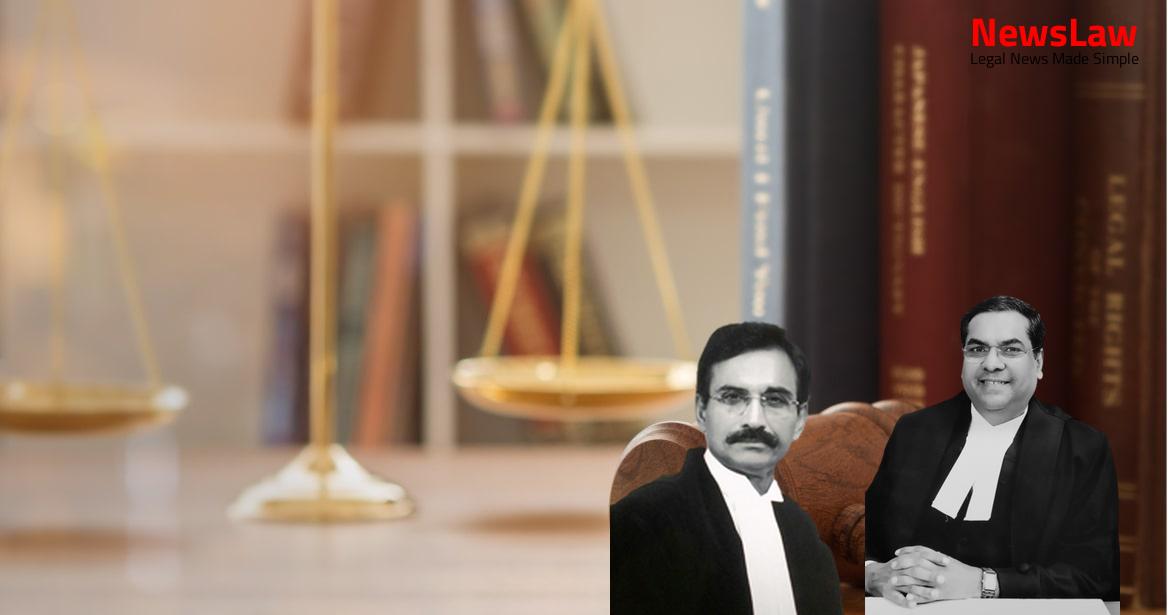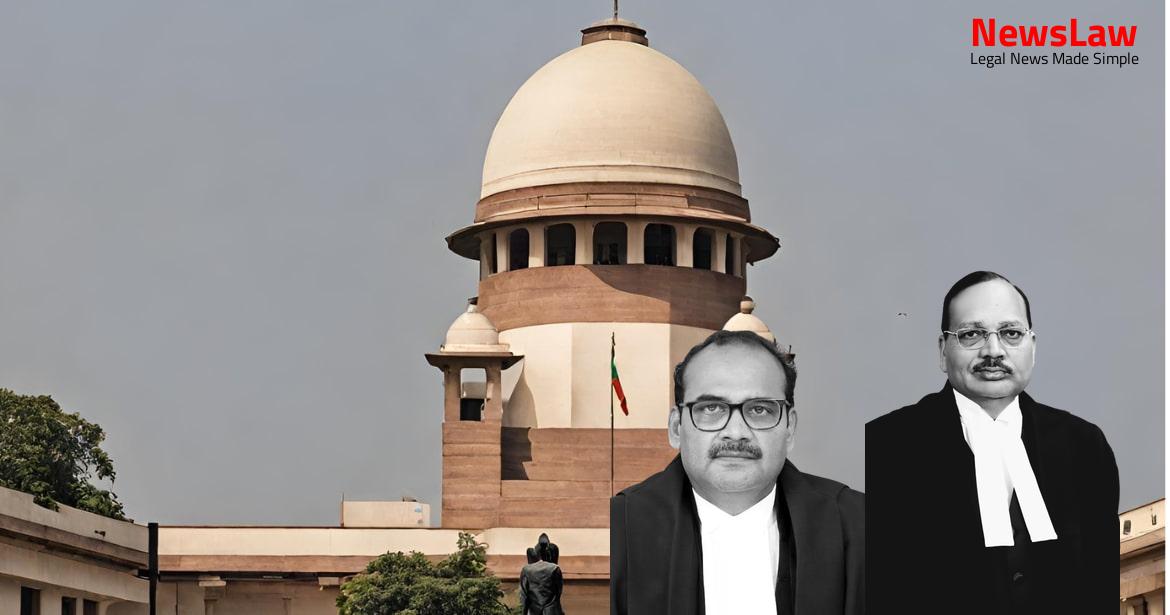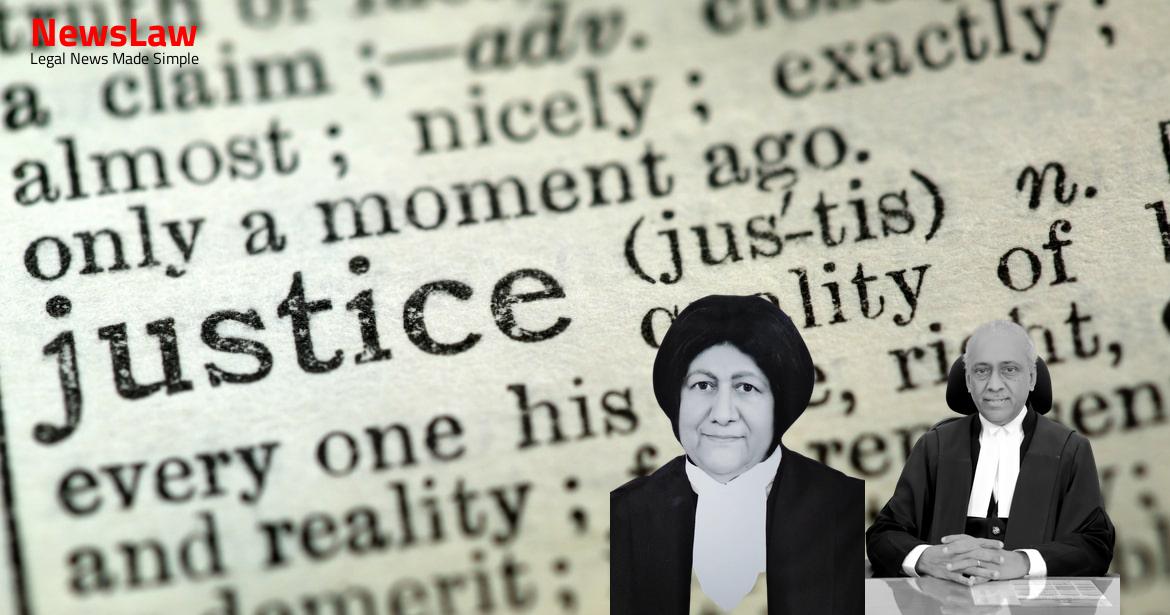Delve into the detailed legal analysis conducted by the Court in a recent case concerning the selection process for the appointment of a Director General of Police. The case involves challenging the criteria set by the Empanelment Committee and the application of Draft Guidelines, shedding light on important principles of judicial review in administrative actions. Follow along to understand the nuances of the court’s evaluation in this significant legal matter.
Facts
- The Appellants filed Original Applications in the Central Administrative Tribunal challenging the selection and appointment of Respondent No.4 as DGP (HoPF).
- An Empanelment Committee constituted by the UPSC finalized a panel for the post of DGP (HoPF) consisting of Mr. Dinkar Gupta-Respondent No. 4, Mr. M.K. Tiwari- Respondent No.6, and Mr. V.K. Bhawra- Respondent No.7.
- A list of 12 officers working in the rank of DGP/additional DGP with thirty years of service was forwarded by the State of Punjab for the selection process.
- The Governor of Punjab appointed Mr. Dinkar Gupta as DGP (HoPF) on 07.02.2019, leading to the Appellants’ filing of original applications before the Central Administrative Tribunal.
- The Union of India wrote to UPSC on 19.01.2019 to initiate the process for the appointment of DGP (HoPF) for Punjab.
- The Appellants, including Mr. Siddharth Chattopadhyaya, were included in the list of officers for selection, but Respondent No.4 was appointed as DGP (HoPF) by the State Government from the panel.
- Mr. Siddharth Chattopadhyaya also filed a Writ Petition challenging the rejection of a plea of bias, which was dismissed.
- The High Court allowed the Writ Petitions filed by UPSC, the State of Punjab, and Mr. Dinkar Gupta, setting aside the judgement of the Tribunal.
- The selection and appointment of Respondent No.4 as DGP (HoPF) was upheld by the High Court.
- The Tribunal set aside the panel prepared by the Empanelment Committee and directed the preparation of a new panel of three senior-most officers in accordance with the judgment in Prakash Singh’s case.
- The Tribunal criticized the selection process for not giving due weightage to seniority and found fault with the identification of core policing areas.
- The High Court upheld the Draft Guidelines 2009 framed by UPSC and the jurisdiction of UPSC in formulating guidelines was upheld.
- The High Court approved the selection of five core policing areas for assessment of officers from the State of Punjab.
Also Read: Reformation vs Retribution: Legal Analysis of Death Penalty Imposition
Arguments
- The Appellant argued that the criteria fixed by the Empanelment Committee of UPSC did not follow the directions of the Court in Prakash Singh’s case.
- The Appellant claimed that the selection of Respondent No. 4 as DGP was questionable as the Appellant was senior and there were no justifiable reasons for his supersession.
- The Appellant raised concerns about the list of officers forwarded for selection to one post of DGP and the retirement status of Mr. Mustafa affecting his own chances for appointment.
- The Appellant contended that the Draft Guidelines were not followed properly and the report by the Appellant remained unsigned by other Committee members, raising doubts about its validity.
- The Appellant alleged bias against Respondent No. 5 and highlighted the criminal activities associated with him in a previous case.
- The State defended the selection process and refuted claims of bias and manipulation in the appointment of Respondent No. 4 as DGP.
- The State argued that the Empanelment Committee’s decision was based on the State’s specific policing needs, and the Draft Guidelines were followed in multiple DGP appointments across various states.
- The Empanelment Committee decision was defended by the State as being in accordance with the Court’s guidelines, and no objections were raised by the Appellants during the process.
- The State contended that the Appellant’s actions to tarnish the reputation of Respondent No. 4 and 5 were malicious and without proper evidence.
- The Draft Guidelines were upheld by the State as being aligned with the Court’s directives in Prakash Singh’s case, and the Tribunal’s ruling against them was criticized.
- The Appellant’s criminal charge and their alleged attempt to manipulate the selection process were presented as reasons for the State’s decision and defense of Respondent No. 4’s appointment as DGP.
- Appellant did not raise any objection regarding the participation of Respondent No.5 in the selection proceedings.
- Doctrine of necessity was invoked by the Respondents to argue that Respondent No.5 could not have recused himself from the Empanelment Committee.
- The plea of bias was not accepted by the Tribunal or the High Court.
- Counsel for the Appellant, referring to Badrinath case, stated that if even one member of a multi-member committee is biased, the decision of the committee becomes invalid.
- The doctrine of necessity is applicable only when a committee is formed by a statute or a statutory rule, not in the case of administrative orders.
Also Read: Landmark Legal Analysis on Culpability in Honour Crimes
Analysis
- The preparation of the panel by the Empanelment Committee cannot be said to be suffering from unreasonableness.
- It is not a legal requirement that reasons should be recorded for the Selection Committee’s conclusion.
- The selection based on the Draft Guidelines was defended by UPSC as being in conformity with the directions of the Court.
- The Empanelment Committee’s assessment of the range of experience for core policing areas is a valid factor for selection.
- The Empanelment Committee has the liberty to adopt its own procedure for assessing relative merit of officers.
- The Appellant’s attempt to challenge the recommendations based on bias of Respondent No. 5 is not considered valid, as the bias was not raised earlier in the proceedings.
- The preparation of the panel based on the Draft Guidelines is in compliance with the Court’s directions.
- The identification of core policing areas for assessment is not arbitrary, but a valid exercise of power.
- The Tribunal erred in finding fault with the Empanelment Committee’s procedure and guidelines.
- The selection of officers for the panel is based on merit, very good record, and range of experience for heading the police force.
- Lord Greene emphasized that discretion must be exercised reasonably.
- Directions were sought for framing a new Police Act based on the Model Act drafted by the Commission.
- The writ petition in Prakash Singh’s case led to several directions related to State Security Commission, selection, and minimum tenure of police officers, separation of investigation, and other reforms.
- The directions were issued under Article 32 and were to be implemented until appropriate legislations were passed.
- UPSC was directed to empanel three senior-most officers for the selection of DGP based on service length, record, and experience.
- The State Government was to select the DGP from the empanelled officers with a minimum tenure of two years.
- UPSC framed Draft Guidelines for appointing DGP (Chief of Police) following the court’s directions.
- The Empanelment Committee composition included the Chairman of UPSC and the Home Secretary of India or nominee.
- The judgment in Ashok Kumar Yadav’s case highlighted bias and prejudice in selection processes.
- The Government appointed a National Police Commission in 1977 but its recommendations were not implemented.
- Various cases and judgments were referenced to establish principles of law regarding bias, administrative actions, and judicial review.
- Based on the applicable ratio, there is no need to further consider allegations of bias and prejudice.
- The High Court did not err in overturning the Tribunal’s judgment and confirming the appointment of Respondent No.4 as DGP (HoPF) of Punjab.
Also Read: Legal Analysis in Conviction Case
Decision
- The reconstituted committee is allowed to proceed with the charges already framed
- The appeals have been dismissed
Case Title: MOHD. MUSTAFA Vs. UNION OF INDIA (2021 INSC 731)
Case Number: C.A. No.-006905-006905 / 2021



